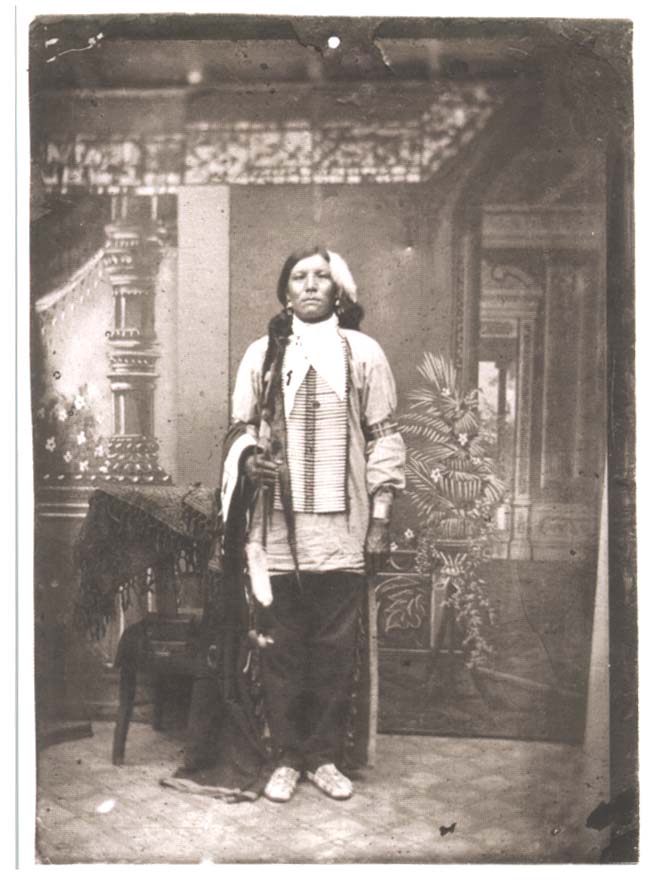

Queer Places:
Fort Robinson Museum & History Center, 3200 Hwy 20, Crawford, NE 69339
 Crazy
Horse (1840 – September 5,
1877)[3]
was a Lakota war leader of the Oglala band in the 19th century.
Considering that Crazy Horse did not marry until he was thirty-one, after the
death of his mentor High Backbone, it is speculated that he had a sexual
relationship with the older warrior. At the time, same-sex relationships were
generally respected by the Lakota people.
Crazy
Horse (1840 – September 5,
1877)[3]
was a Lakota war leader of the Oglala band in the 19th century.
Considering that Crazy Horse did not marry until he was thirty-one, after the
death of his mentor High Backbone, it is speculated that he had a sexual
relationship with the older warrior. At the time, same-sex relationships were
generally respected by the Lakota people.
HHe took up arms against the United States federal government to fight against encroachment by white American settlers on Native American territory and to preserve the traditional way of life of the Lakota people. His participation in several famous battles of the Black Hills War on the northern Great Plains, among them the Fetterman Fight in 1866 in which he acted as a decoy and the Battle of the Little Bighorn in 1876 in which he led a war party to victory, earned him great respect from both his enemies and his own people.
In September 1877, four months after surrendering to U.S. troops under General George Crook, Crazy Horse was fatally wounded by a bayonet-wielding military guard while allegedly[4][5] resisting imprisonment at Camp Robinson in present-day Nebraska. He ranks among the most notable and iconic of Native American warriors and was honored by the U.S. Postal Service in 1982 with a 13¢ Great Americans series postage stamp.
My published books: